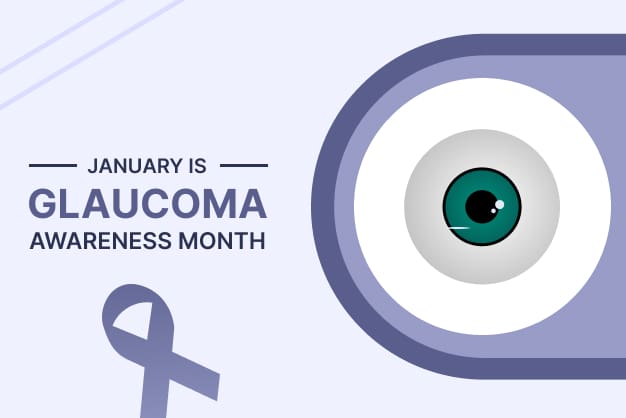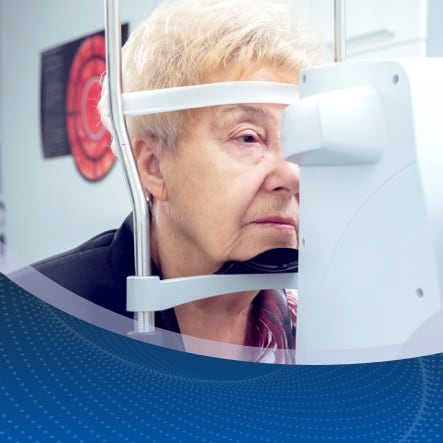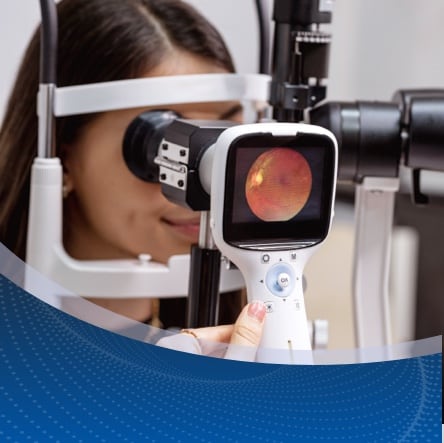January is Glaucoma Awareness Month — an important time for screenings, educational events, and sharing resources for those impacted by glaucoma. Bringing awareness to glaucoma contributes to early detection, which can help prevent serious vision loss and blindness.
Here’s a breakdown of key information and ways you can get involved in raising awareness:
What is Glaucoma?
Glaucoma is a group of eye diseases that damage the optic nerve, the cable that transmits visual information to the brain. This damage can lead to permanent vision loss if left untreated.
There are two main types of glaucoma:
- Primary Open-Angle Glaucoma (POAG): The most common form, where fluid buildup in the eye increases pressure, damaging the optic nerve.
- Angle-Closure Glaucoma: A less common type where the drainage channels for the fluid become blocked, causing a sudden increase in pressure.
Who is at Risk for Glaucoma?
- People over 60 years old
- Individuals with a family history of glaucoma
- People of African, Asian, or Hispanic descent
- Diabetics
- Severely nearsighted individuals
Why is Glaucoma Awareness Important?
Glaucoma is a leading cause of blindness, especially among African Americans and Latinos. Over 3 million Americans have glaucoma, and millions more worldwide are unaware they even have it.
Because glaucoma progresses slowly and subtly, many people do not notice any changes in their vision. However, as the disease gets worse, peripheral vision begins to deteriorate (for example, seeing things from the side). Without treatment, glaucoma can eventually cause irreversible blindness. Early detection helps prevent vision loss because the damage caused by glaucoma is irreversible.
History of Glaucoma Awareness Month
1857
Albrecht von Graefe, a pioneer in ophthalmology, developed a method for diagnosing glaucoma and laid the groundwork for modern treatment and knowledge.
1978
The Glaucoma Research Foundation was established. This non-profit organization funds research educates the public, and provides support to those affected by glaucoma.
1995
National Glaucoma Awareness Month was officially recognized to raise public awareness about this silent disease.
2002
The “Big Picture” initiative was launched to encourage people with glaucoma to share their stories. This initiative focused on the human impact of glaucoma, which raised public awareness and support.
2012
World Glaucoma Week was initiated and expanded the reach of awareness campaigns beyond national borders.
How You Can Help Raise Awareness
Spread the Word
Talk to friends and family about glaucoma, especially those at higher risk. Share information and resources you find online.
Get Involved in Your Community
Participate in local events, volunteer at vision screenings, or organize educational talks.
Donate to the Glaucoma Research Foundation
Donate to a trusted research organization to support the fight against glaucoma. Every contribution, big or small, brings us closer to a cure for this sight-threatening disease.
Join a Glaucoma Support Group
Connect with others who understand what you’re going through. It’s a great way to share experiences, learn, and find support.
Resources To Share
Spread the word about glaucoma! Use these resources to educate your loved ones and help them protect their vision.
For Patients
- Glaucoma Resources – NEI
- Glaucoma Research Foundation Resources
- NEI Videos and Webinars
- Glaucoma Animation – YouTube
- Prevent Blindness
- Vision Health Advocacy Coalition
For Patients and Caregivers
For Caregivers
Learn More and Take Action
Book an appointment with Griffey Eye Care & Laser Center for more detailed information about glaucoma, including types, treatments, and risk factors. Our team has over 50 years of experience detecting, treating, and managing varying cases of glaucoma and has the technology and support to target your unique case.
Even if you do not have glaucoma, you can still be a part of our cause. Raising awareness and encouraging regular eye exams means we can fight glaucoma together and protect sight for millions. Visit our website for more.
**Please note that the suggestions provided in this blog are for general informational purposes only and may not be suitable for your specific insurance plan and glaucoma needs. It is important to consult a qualified healthcare professional for personalized advice and treatment.**












